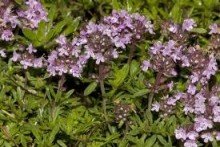With the change of the seasons upon us and heading into the winter months, it’s time to think about those herbs and brews we may find useful to keep us well or help us heal from winter infections.
Remember that, when using herbs for healing and wellness, it is important to bring their powers into your life from many different angles – use a tea, tincture, and/or an aromatherapy steam to reinvigorate a weak constitution,and think preventatively to strengthen immunity during times of good health.
Botanical Brews:
This simple blend can serve as a base for any soup, or can be taken ‘as is’. It strengthens the immune system and can help prevent weakness during the winter months. It can be quite powerful, but as with any herbal tonic (blends designed to strengthen over the long term) it is best used on a regular basis.
Astragalus (Astragalus membranaceus) root 1 cup of dry root
Ashwagandha (Withania somnifera) root ½ cup dry root
Red Reishi (Ganoderma lucidum) mushroom ½ cup dry mushrooms
(if you cannot find these use Shitake mushroom fresh or dried).
Burdock (Actium lappa) root ½ cup dry or fresh root
Garlic (Allium sativum) bulb 4 minced cloves
Take the above ingredients, and simmer them, covered, in a pot with 8 cups of water (this process is called a decoction).
Simmer on very, very low heat for at least one hour (in China, these types of tonics are often simmered for a whole day) – a slow cooker can be helpful.
Be sure to keep an eye on the soup, and add water as needed. Don’t scorch the pot!
Strain and serve, perhaps with a little honey, or freeze for storage. The daily dose is 8 fluid ounces (1 cup).
Get creative with this brew and make a soup! Add onions, carrots, seaweed (dulse, arame for example) and salt to taste. You can also add cabbage, potatoes, and cooked beans to make it more of a hearty meal. Or herbs and spices like Cayenne, Thyme, and Parsley. These soups remind us that our daily food is our best medicine!
Herbal Tea – For lung congestion
Sometimes a cold can ‘go down’ into the lungs, making it difficult to breathe and producing a deep
and sometimes painful cough. In these cases, this blend can help.
Mullein (Verbascum thapsus) leaves 3 Tablespoons dry leaves
Thyme (Thymus vulgaris) leaves 1 Tablespoon dry leaves
Licorice (Glycyrrhiza glabra) root 1 Tablespoon dry root
Ginger (Zingiber officinalis) root powder 2 Teaspoons dry powder
Place all the ingredients in a teapot or kilner jar.
Add 4 cups of boiling-hot water, cover, and steep for 15 to 20 minutes (this process is called an infusion), then strain.
Drink the whole brew over the course of a day. You can prepare this tea the night before, and let it steep all night if you like, but I have found that teas for colds and flus work better if you drink them hot.
Add honey to taste.
Herbal Tea Blend – For nose and sinus congestion
Often times the worst part of a cold is a stuffy nose. This blend can help relieve that congestion,
drying up the nasal passages a bit. It is also useful, I’ve found, after the worst of a cold or flu is
done, to help relieve lingering symptoms of congestion.
Elder (Sambucus nigra) flowers 2 Tablespoons dry flowers
Red Clover (Trifolium praetense) flowers 2 Tablespoons dry flowers
Peppermint (Mentha piperata) leaves 1 Tablespoon dry leaves
Yarrow (Achillea millefolium) 2 tablespoons dry herb
Ginger (Zingiber officinalis) dry root pieces or powder, grated fresh is best. (1 Teaspoon)
Place all the ingredients in a teapot or kilner jar.
Add 4 cups of boiling-hot water, cover, and steep for 15 to 20 minutes (this process is called an infusion), then strain.
Drink all of the tea over the course of 4 hours, then repeat if necessary.
You can add a little honey to taste if desired, although I’ve found too much sweetness can make nasal congestion worse.
Aromatherapy steam
This process is very useful to help relieve congestion in the nose and lungs. Usually best to do at
night, before bed, to clear the breathing passages and encourage restful sleep.
Also it’s really useful during the day if feeling really poorly.
1. Boil some water and pour straight into a bowl.
2. Add 2 drops each of these essential oils from herbs (highly concentrated plant essences – use only a few
drops, never internally, and be careful because, undiluted, they can irritate the skin):
a. Rosemary
b. Thyme
c. Eucalyptus
3. Cover your head with a towel and breathe in the steam for 5-10 minutes.
You can also put the oils in a facial steamer instead if you have one.
Hope you have fun with all these herbal brews.
Jacqui Apostolides – The Urban Herbalist BSc (Hons) Herb.Med.
For further information on treatments as well as the dried herbs for all these recipes can be found at www.urbanherbals.co.uk
For more fascinating stories and tips visit Dolmen Grove







